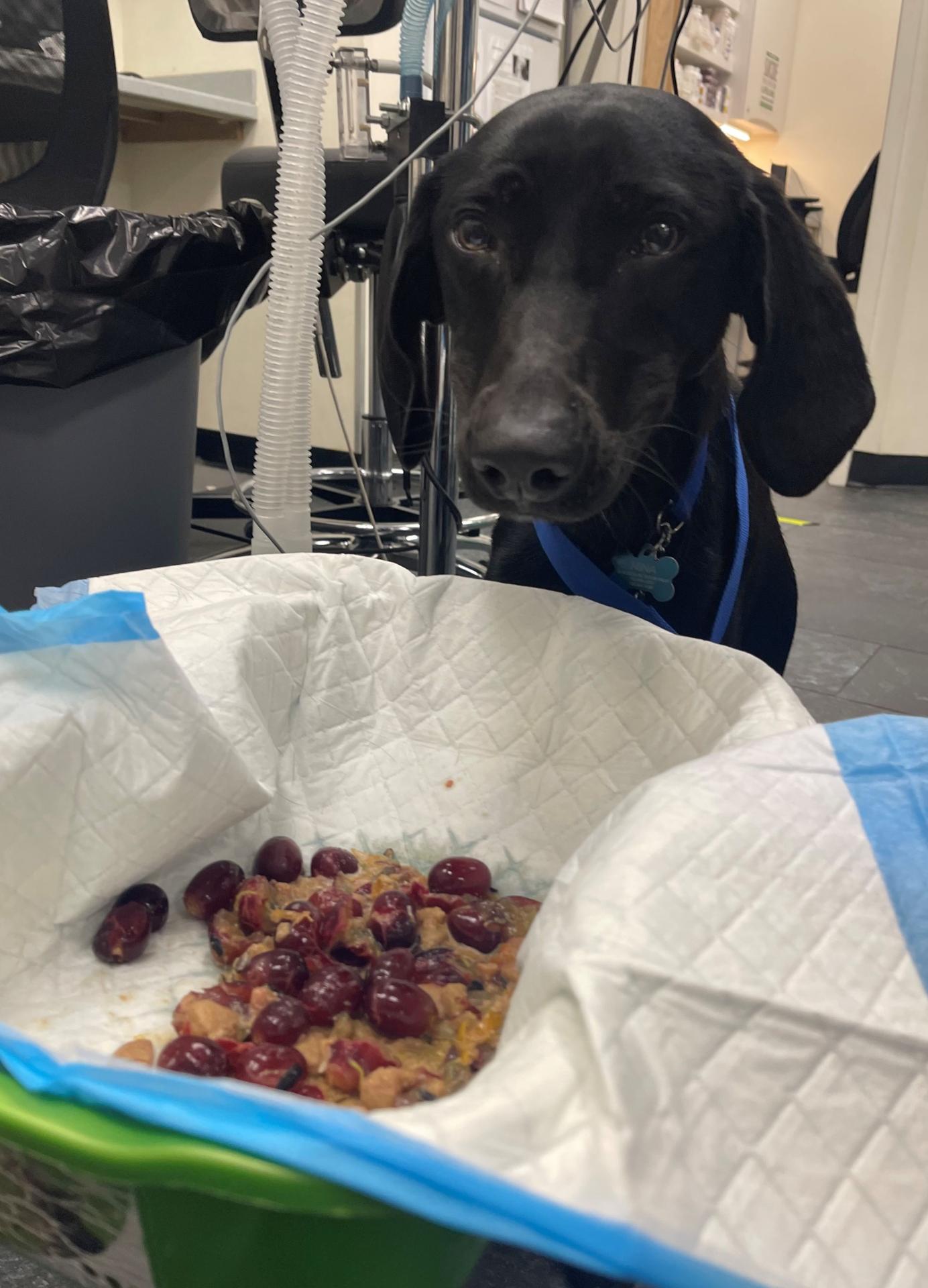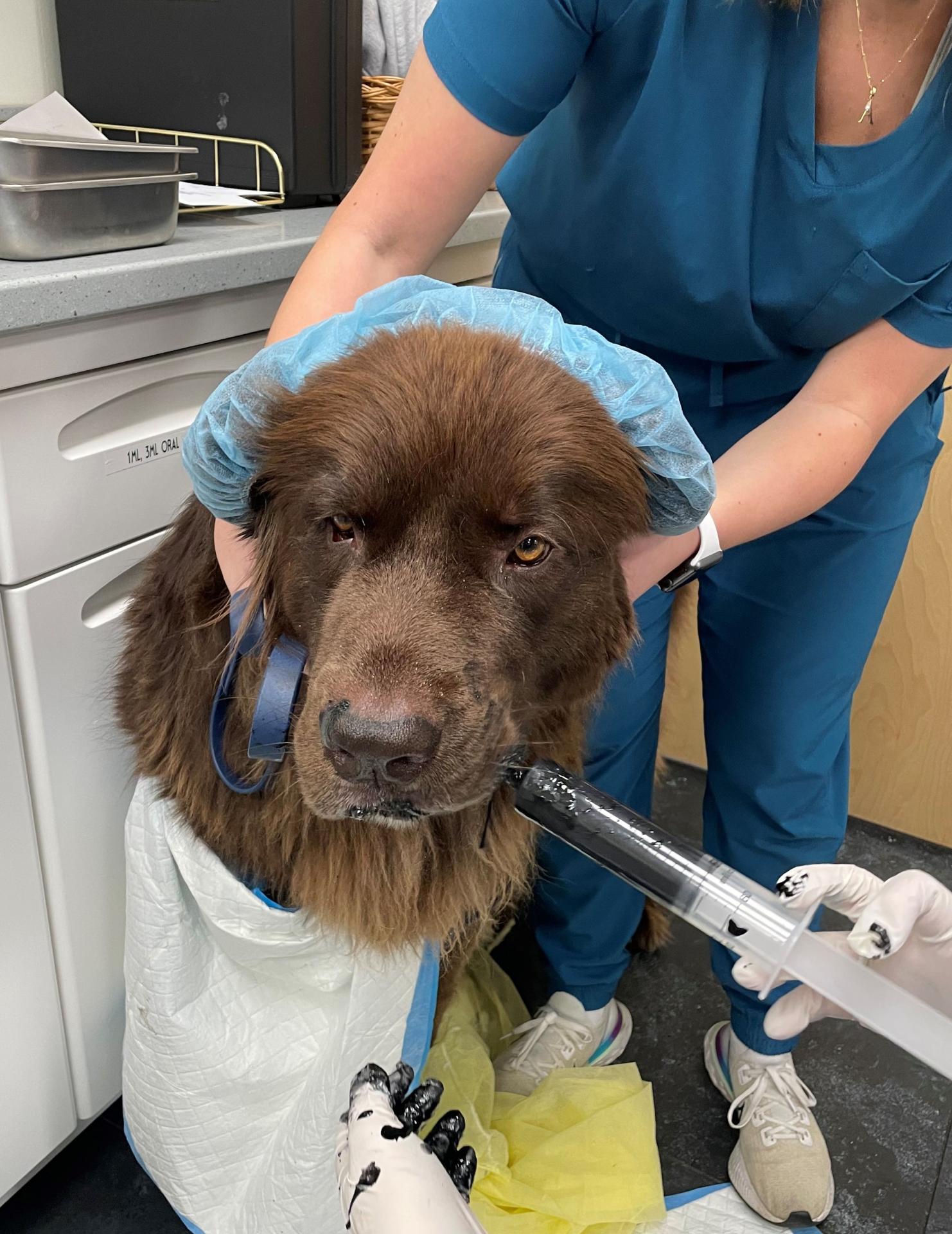We all love to share the occasional treat with our furry companions but did you know grapes and raisins can be toxic to dogs? Whether we unknowingly give them these or find them sneaking into the trash or your children’s lunchbox, here is more info about why grapes and raisins could mean a trip to the ER for your dog.
 Grape or raisin ingestion in dogs can lead to acute kidney injury or kidney failure. The exact reason why this happens isn’t fully understood but recently, tartaric acid - which is found in high quantities in grapes and also in cream of tartar - has been thought to be the possible cause. The exact toxic dose is unknown and can vary between individual dogs. For this reason, we as veterinary professionals tend to err on the side of caution when it comes to treating grape and raise ingestion in an effort to keep your pets safe!
Grape or raisin ingestion in dogs can lead to acute kidney injury or kidney failure. The exact reason why this happens isn’t fully understood but recently, tartaric acid - which is found in high quantities in grapes and also in cream of tartar - has been thought to be the possible cause. The exact toxic dose is unknown and can vary between individual dogs. For this reason, we as veterinary professionals tend to err on the side of caution when it comes to treating grape and raise ingestion in an effort to keep your pets safe!
Signs of kidney injury can include vomiting, diarrhea, lack of appetite, increased thirst, increased urination, abdominal pain, weakness, and lethargy. Rarely, neurologic signs such as seizures, tremors, and wobbly gait can also develop.
 Symptoms of kidney failure typically develop within 24 to 72 hours after ingestion. Prognosis is good for dogs who don’t develop any symptoms and when rapid treatment is initiated. For those who do develop symptoms, prognosis is variable and can ultimately be fatal.
Symptoms of kidney failure typically develop within 24 to 72 hours after ingestion. Prognosis is good for dogs who don’t develop any symptoms and when rapid treatment is initiated. For those who do develop symptoms, prognosis is variable and can ultimately be fatal.
If you know your dog has ingested grapes or raisins, the best course of action is to contact us at City By The Sea Vet/Veterinary Urgent Care immediately. In most cases, we will recommend bringing your pet in for an examination, to induce vomiting, and check blood work. In some cases, hospitalization, intravenous fluids, and serial blood work are needed.


